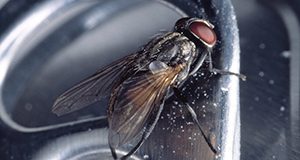As the diversity of Extension clientele continues to grow, Extension educators must consider new ways of supporting this population. In this new 2-page article, a follow-up to EDIS article AEC678, Culturally Responsive Teaching: A Framework for Educating Diverse Audience, the authors provide a checklist to serve as a guiding tool when planning workshops and to ensure that participants feel connected to, engaged with, and understood while working toward achieving workshop educational goals. Written by Cecilia E. Suarez, John M. Diaz, and Laura E. Valencia, and published by the UF/IFAS Department of Agricultural Education and Communication.
https://edis.ifas.ufl.edu/wc351
Tag: John M. Diaz
Homeowner’s Guide to Selecting a Pest Control Service
While you can prevent pests from infesting your home, you might need the services of a professional to evict them if they have already moved in. The pest control industry in Florida is the largest in the nation. How do you choose the best pest control company for you? This 6-page fact sheet written by Faith Oi, James E. Davis, John M. Diaz, Sarah M. Ellis, Randall A. Cantrell, Nelly Nelson, and Judy Corbus and published by the UF/IFAS Entomology and Nematology Department is full of practical tips and advice to help you choose a reliable and effective pest control service to help you kick out any uninvited crawlies.
http://edis.ifas.ufl.edu/in1269
Identifying and Meeting the Needs of Extension’s Target Audiences
This new 4-page article provides an overview of the concept of target audiences as relating to Extension education and briefly presents concepts of audience analysis and educational content selection. In contrast to the general population, a target audience is comprised of people who can take some explicit action to help solve an identified problem addressed by an Extension program. Sometimes they are also those most affected by that problem. An understanding of the concept of target audiences paired with intentional selection of appropriate educational activities and content can support an impactful Extension program. Written by Laura A. Warner, Glenn D. Israel, and John M. Diaz, this article is a publication of the UF/IFAS Department of Agricultural Education and Communication.
http://edis.ifas.ufl.edu/wc336
Using County Typology Informed by Population Size to Understand Key Audience Characteristics for Tailored Landscape Water Conservation Programs
A major priority for UF/IFAS is the promotion of science-based landscape management practices to conserve water resources. This 7-page publication outlines specific opportunities that exist for tailoring landscape water conservation programs to Floridians who live in more and less metropolitan areas. Written by Laura A. Sanagorski Warner and John M. Diaz and published by the UF/IFAS Department of Agricultural Education and Communication, September 2018.
http://edis.ifas.ufl.edu/wc314



